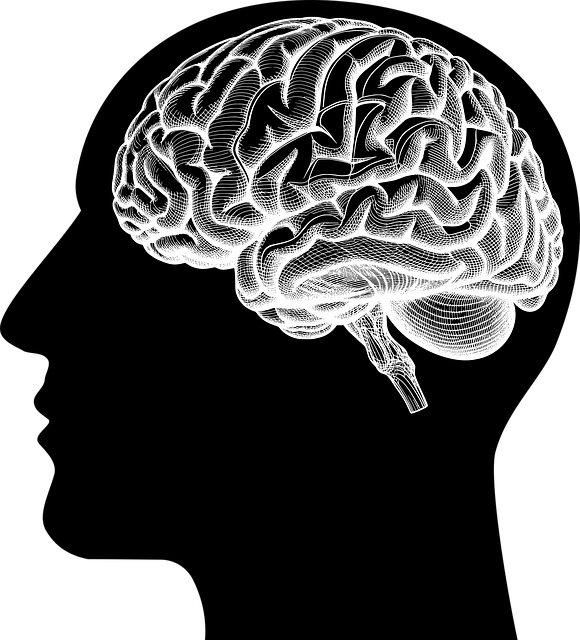Englewood German Speaking Therapy tackles mental health diagnosis challenges by improving accuracy, reducing stigma, and providing culturally sensitive care for German-speaking individuals. They employ innovative practices like Compassion Cultivation and public awareness campaigns to enhance understanding and access to specialized services. By focusing on patient-therapist relationships, empathy, and holistic approaches, they aim to revolutionize mental healthcare, empowering individuals to actively manage their well-being effectively.
Mental illness diagnosis accuracy is a critical aspect of patient care, often hindered by misdiagnosis and stigma. This article explores targeted efforts to improve diagnostic precision, focusing on unique initiatives like Englewood German Speaking Therapy’s cultural sensitivity approach. We delve into innovative tools, highlighting their role in enhancing evaluation methods. Additionally, we examine the significance of patient-therapist relationships as a cornerstone for effective treatment, drawing insights from successful models like Englewood’s practice.
- Understanding the Challenges: Misdiagnosis and Stigma in Mental Health
- Englewood German Speaking Therapy: A Cultural Sensitivity Approach
- Innovative Tools and Techniques for Accurate Diagnosis
- Enhancing Patient-Therapist Relationships: The Key to Effective Treatment
Understanding the Challenges: Misdiagnosis and Stigma in Mental Health

Mental health diagnosis faces significant challenges, often marked by misdiagnosis and stigma. Misdiagnosis occurs when an individual’s symptoms are incorrectly interpreted, leading to inappropriate treatment plans. This is particularly problematic in cases where mental illnesses share similar presentations, making it difficult for professionals to distinguish between conditions. For instance, the symptoms of anxiety disorders can overlap with those of depression, leading to misidentification. At Englewood German Speaking Therapy, we recognize these hurdles and strive to enhance diagnosis accuracy.
Stigma surrounding mental illness further complicates matters. Many individuals facing mental health struggles avoid seeking help due to fear of judgment or societal stereotypes. This reluctance can significantly delay necessary treatment. To combat this, initiatives focused on raising awareness and promoting understanding are crucial. Encouraging open conversations about mental health, educating communities, and emphasizing the effectiveness of professional support can help reduce stigma. Additionally, programs that foster social skills training, conflict resolution techniques, and inner strength development can empower individuals to manage their mental well-being more effectively.
Englewood German Speaking Therapy: A Cultural Sensitivity Approach

Englewood German Speaking Therapy represents a significant step forward in enhancing mental healthcare accessibility and accuracy within the German-speaking community. This specialized approach leverages cultural sensitivity, ensuring that treatment is tailored to individuals’ unique linguistic and cultural backgrounds. By offering therapy specifically designed for German speakers, Englewood addresses a critical gap in the market, where many existing services may not adequately cater to this demographic’s specific needs and challenges.
The integration of cultural sensitivity in mental healthcare practice fosters an environment of trust and understanding. Therapists skilled in German and equipped with emotional intelligence can more effectively communicate with clients, improving diagnosis accuracy. This approach not only enhances the quality of care but also encourages open dialogue about mental health issues within the community. By focusing on mood management and leveraging emotional intelligence, Englewood German Speaking Therapy aims to revolutionize mental healthcare accessibility for German speakers, ultimately improving overall well-being.
Innovative Tools and Techniques for Accurate Diagnosis

In the pursuit of enhancing mental illness diagnosis accuracy, innovative tools and techniques are reshaping the landscape of healthcare. Englewood German Speaking Therapy leads the way with evidence-based practices like Compassion Cultivation Practices, which foster understanding and empathy among therapists and patients. By integrating these compassionate approaches, therapists can create a safe environment, encouraging individuals to share their experiences more openly, leading to deeper insights and more precise diagnoses.
Additionally, Crisis Intervention Guidance plays a pivotal role in accurate diagnosis by providing immediate support during acute mental health episodes. Public Awareness Campaigns Development is another strategic initiative aimed at destigmatizing mental illness and promoting early intervention. Through these campaigns, communities are educated on recognizing subtle signs and symptoms, enabling earlier referrals for specialized therapy, such as that offered by Englewood German Speaking Therapy.
Enhancing Patient-Therapist Relationships: The Key to Effective Treatment

Building strong patient-therapist relationships is a cornerstone of effective mental health treatment. At Englewood German Speaking Therapy, we recognize that trust and open communication are essential for fostering an environment where individuals feel safe to explore their thoughts and emotions. Therapists who prioritize active listening, empathy, and genuine interest in their patients’ well-being can significantly enhance the diagnostic process. By creating a supportive space, patients are more likely to share intimate details, which improves the accuracy of mental illness diagnoses.
The relationship between patient and therapist extends beyond the therapy room, particularly when integrating burnout prevention strategies for healthcare providers. Crisis intervention guidance and resilience-building techniques not only benefit therapists but also positively impact their interactions with clients. Encouraging open dialogue about stress management and emotional well-being allows therapists to better understand their patients’ challenges, leading to more precise assessments and tailored treatment plans.
In addressing mental illness diagnosis accuracy, efforts like Englewood German Speaking Therapy’s cultural sensitivity approach play a pivotal role. By acknowledging and overcoming challenges such as misdiagnosis and stigma, and by leveraging innovative tools and techniques, the field can significantly enhance patient outcomes. Cultivating strong patient-therapist relationships emerges as the cornerstone for effective treatment, ensuring individuals receive tailored, culturally competent care that empowers their journey towards mental well-being.














